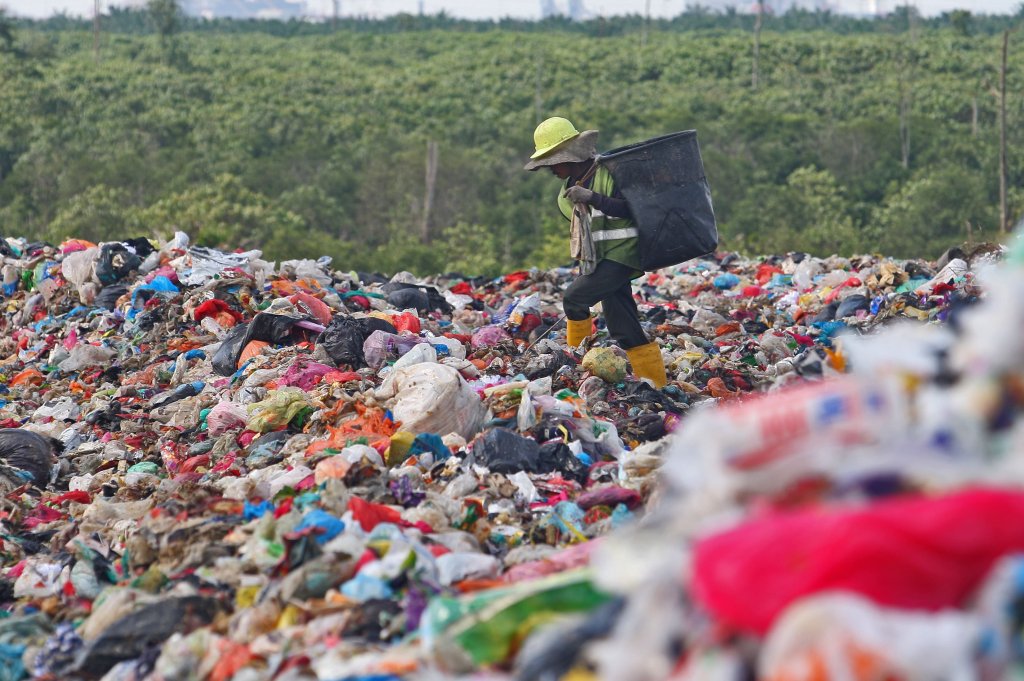Malaysia’s significant reliance on plastics, as highlighted by its high per capita consumption of 16.78kg, presents a stark environmental challenge despite the industry’s economic contributions [1]. The lifecycle of these plastics is demonstrably detrimental, with Malaysia contributing approximately 73,098 metric tonnes of plastic waste to the oceans annually and ranking third among the world’s top ocean polluters [2]. This pollution directly impacts vulnerable coastal communities and key economic sectors like tourism, fishing, and shipping, underscoring the urgent need for a paradigm shift in how the nation manages its plastic resources.
While the statistic that approximately 24% of key plastic resins were recycled in 2019 offers a glimmer of hope, the accompanying information reveals critical shortcomings in the recycling ecosystem [3]. The reliance on limited collection systems, the voluntary nature and limited coverage of recycling initiatives, and the tendency for the informal sector to focus on high-value plastics leave a substantial amount of low-value plastics susceptible to leakage into the environment. Furthermore, the loss of 81% of the material value of disposed plastics represents a significant economic inefficiency and a missed opportunity for a circular economy [3].

A Global Movement Toward a Plastics Treaty
The issue of plastic pollution is not unique to Malaysia—it is a global crisis that has prompted international action. The United Nations Environment Programme (UNEP) has spearheaded negotiations for a legally binding Global Plastic Treaty, with the goal of addressing plastic pollution across its entire lifecycle, from production to disposal. The treaty, expected to be finalized by 2024, is being hailed as the most significant international environmental agreement since the Paris Climate Accord.
Key discussions within the treaty negotiations highlight the need for extended producer responsibility (EPR), restrictions on harmful plastic additives, and harmonized global standards for recyclability. Malaysia’s participation in the treaty negotiations is a step in the right direction, but without robust domestic legislation, the nation risks falling behind in implementation, undermining its commitments to sustainability and responsible waste management.
Why Malaysia Needs Comprehensive Legislation
Despite the commendable development of two national roadmaps by the Ministry of Natural Resources and Environmental Sustainability (NRES)—the “National Roadmap Towards Zero Single-Use Plastics 2018-2030” and the “Malaysian Plastics Sustainability Roadmap 2021-2030″—the pace of implementation seems to be at a standstill. The Circular Economy Blueprint for Solid Waste in Malaysia (2025-2035) by the Ministry of Housing and Local Government (KPKT) was also released with the intent to address the value chain and waste generated towards a circular economy. However, key milestones such as the mandatory Extended Producer Responsibility (EPR) scheme and the phase-out of problematic plastics, have been delayed until 2030, leaving Malaysia with an unregulated plastic market for the foreseeable future.
Without binding legislation, these roadmaps risk being aspirational rather than actionable. Enforceable regulations are necessary to close enforcement gaps, provide legal certainty for businesses transitioning away from virgin plastic dependency, and prevent the unchecked proliferation of plastic waste. Moreover, the instability within Malaysia’s environmental policy landscape has hindered continuity, making legislation an essential mechanism for ensuring long-term policy adherence.
Managing Plastics Across the Value Chain
Addressing plastic pollution requires a systemic approach that manages plastics across their entire lifecycle. Malaysia’s plastic value chain is complex, involving petrochemical producers, plastic manufacturers, retailers, consumers, waste management companies, and recyclers. Effective legislation must tackle all these stages, starting with production, where eco-friendly product design should be incentivized and the use of recycled content in plastic packaging mandated. On the consumption side, bans or levies on single-use plastics should be enforced while promoting reusable alternatives. Waste management must be standardized with an efficient collection and recycling system to ensure that all plastic waste is captured and processed effectively. Additionally, Extended Producer Responsibility (EPR) should be mandated, requiring producers to take responsibility for the end-of-life management of their products. This shift in accountability away from consumers and local governments would encourage industry-wide sustainability efforts and innovation in plastic waste reduction.
Effective legislation should target all these stages:
- Production: Incentivizing eco-friendly product design and mandating the use of recycled content in plastic packaging.
- Consumption: Enforcing bans or levies on single-use plastics and promoting reusable alternatives.
- Waste Management: Establishing a standardized collection and recycling system, ensuring that all plastic waste is captured and processed efficiently.
- Extended Producer Responsibility (EPR): Mandating that producers take responsibility for the end-of-life management of their products, thus shifting the burden away from consumers and local governments.
Lessons from Japan’s Plastics Legislation
Japan’s “Plastic Resource Circulation Act,” enforced in 2022, offers a compelling case study for Malaysia. The law takes a holistic approach by addressing the entire lifecycle of plastics, promoting the 3Rs (Reduce, Reuse, Recycle), and enhancing circularity. The legislation mandates that manufacturers incorporate sustainability into product design, with incentives for eco-friendly materials, while retailers are required to reduce disposable plastics under strict government oversight. Businesses must comply with recycling targets, and municipalities collaborate with private recyclers to improve efficiency. Furthermore, companies are held accountable for the collection and recycling of plastic waste generated by their operations. Japan’s model demonstrates that comprehensive, enforceable policies can significantly reduce plastic waste and promote a circular economy. Malaysia should consider adopting similar legislative measures to align with its sustainability goals and global best practices.
Key provisions from Japan’s Plastic Resource Circulation Act:
- Design for the Environment: Manufacturers are required to incorporate sustainability into product design, with incentives for eco-friendly materials.
- Single-Use Plastics Reduction: Retailers are mandated to reduce disposable plastics, with strict oversight from the government.
- Mandatory Recycling: Businesses must comply with recycling targets, while municipalities collaborate with private recyclers to improve efficiency.
- Corporate Responsibility: Companies must establish collection and recycling plans for plastic waste generated by their operations.
The complexity of Malaysia’s plastic value chain, involving numerous stakeholders from raw material production to end-of-life treatment, significantly contributes to the challenges in implementing the national sustainability roadmaps. The sheer number and diverse interests of these actors necessitate a highly coordinated and collaborative approach, which the forthcoming act could potentially facilitate through clearer mandates and responsibilities. Japan’s move to legislate plastic circulation offers a compelling example of a comprehensive legal framework addressing the entire lifecycle of plastics, promoting the 3Rs and increasing circularity. Its blend of design incentives, reduction mandates, and facilitated recycling pathways holds valuable lessons for Malaysia as it embarks on developing its own dedicated legislation. The introduction and robust enforcement of such a law could indeed facilitate the alignments, enhancements, and improvements critically needed to propel Malaysia towards a truly sustainable future for plastics.
A Call to Action: The Path Forward
The Malaysian Government has signaled its intent to develop an act to tackle plastic pollution [4]. By enacting a comprehensive legislation that establishes legally binding targets for plastic reduction, recycling, and reuse, coupled with implementation of a mandatory EPR system that holds producers accountable, Malaysia can move from ambition to action. In addition, the act should also strengthen waste management infrastructure with clear funding mechanisms, and aligns with global treaty obligations to ensure compliance with international standards and enable a truly effective circular economy for the plastic lifecycle. The time to act is now, before plastic pollution further threatens our environment, economy, and future generations.
Written by:
Abdulmuiz Abd Aziz: Senior Vice President, Head of PA Lestari
Anwar Azmi: Senior Associate
Members of PA Lestari, a specialised unit of PEMANDU Associates for Sustainability & Climate Change
Sources:
[1] World Wide Fund for Nature (WWF). (2019). Study on Extended Producer Responsibility (EPR) Scheme Assessment for Packaging Waste in Malaysia. Retrieved from https://www.wwf.org.my/?28886%2FStudy-on-Extended-Producer-Responsibility-EPR-Scheme-Assessment-for-Packaging-Waste-in-Malaysia=
[2] Fong, F. (2024, February 24). Malaysia Ranks Third In Ocean Pollution: A Rising Tide Of Plastic Peril. The Rakyat Post. Retrieved from https://www.therakyatpost.com/news/malaysia/2024/02/24/malaysia-ranks-third-in-ocean-pollution-a-rising-tide-of-plastic-peril/
[3] World Bank Group. (2021). Plastics Market Study for Malaysia: Plastics Circularity Opportunities and Barriers. Retrieved from https://www.worldbank.org/en/country/malaysia/publication/market-study-for-malaysia-plastics-circularity-opportunities-and-barriers
[4] Malay Mail. (2024, June 6). Nik Nazmi: Malaysia to consider dedicated law to address plastic disposal and pollution. Retrieved from https://www.malaymail.com/news/malaysia/2024/06/06/nik-nazmi-malaysia-to-consider-dedicated-law-to-address-plastic-disposal-and-pollution/138391






